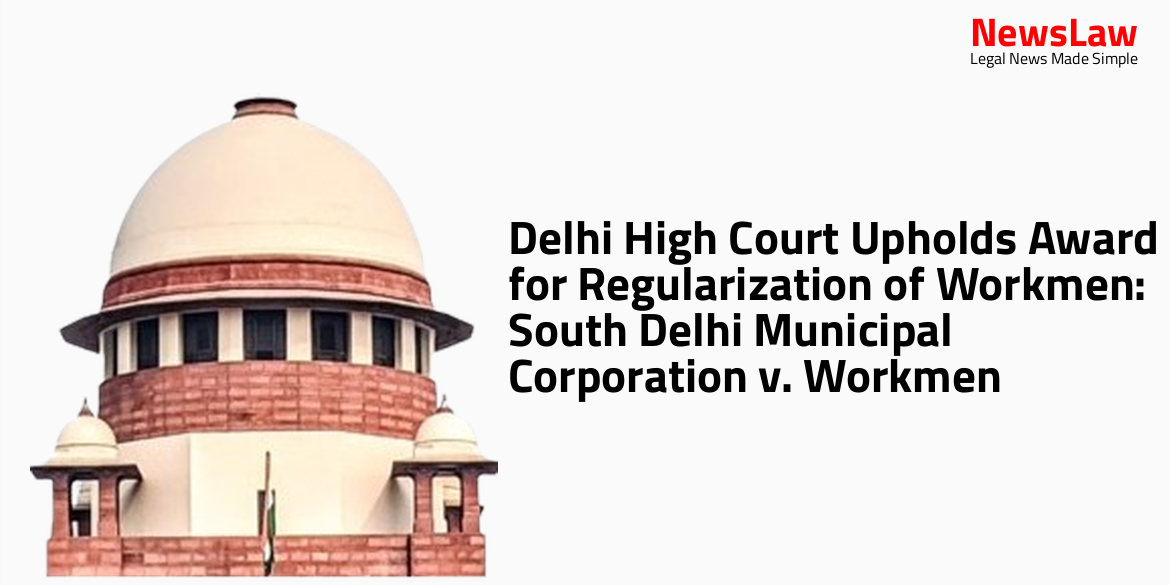In a significant legal battle concerning jurisdiction in territorial waters, the Supreme Court of India addressed the case of Karnataka State against Great Eastern Shipping Co. Ltd. The dispute revolved around the imposition of sales tax on goods used within the territorial waters of India. The Court’s verdict carries immense implications for maritime taxation and contractual agreements within the territorial jurisdiction. This judgment marks a pivotal moment in clarifying the legal boundaries of taxation and jurisdictional authority.
Facts
- The Division Bench of the High Court of Karnataka rejected the appellant’s submission regarding the territorial waters of Karnataka.
- The appellant argued that the State of Karnataka had no power over territorial waters, but this claim was denied by the Court.
- It was established that the State of Karnataka does have authority over its territorial waters.
Also Read: Supreme Court Ruling on Exemption of Excise Duties and Cess
Arguments
- The appellant, The Great Eastern Shipping Co. Ltd., filed a writ petition challenging the competence of the State Government of Karnataka to impose sales tax on goods used in the territorial waters of India.
- The appellant owned a tug named ‘Kumari Tarini’ and entered into a Charter Party Agreement with New Mangalore Port Trust in 1998.
- The Assistant Commissioner of Income Tax directed the company to register under the KST Act, claiming tax under section 5C.
- The company refuted the claim stating no transfer of right to use the goods as it retained possession and custody of the tug.
- The High Court was criticized for treating territorial waters as part of Karnataka’s territory, contrary to Article 297 and the Territorial Waters Act, 1976.
- Arguments were made emphasizing that in a time charter agreement, control, ownership, and possession of the vessel remain with the owner, indicating no transfer of right to use.
- Reference was made to Parliament’s exclusive authority to make laws concerning territorial waters and fiscal matters, as supported by Article 246(4) and Article 286.
- The Time Charter Agreement dated 8.1.1998 was argued not to amount to a transfer of the right to use goods under section 5C of the KST Act, but rather a contract of service.
- The argument made was that under the scheme of the Harbour Craft Rules, the owner retains control of the vessel, indicating a service contract rather than a lease.
- A distinction was drawn between a lease, which involves a transfer of interest in the property, and a license, which grants only the right to use the property.
Also Read: Preservation of Fundamental Rights in Education
Analysis
- In the context of a time charterparty agreement, the question arises whether the charter amounts to a demise or remains a contract for services.
- The terms and conditions of the charter-party are crucial in determining the nature of the agreement.
- Court references various established principles and legal authorities to define the essence of a time charterparty agreement.
- The discussion includes insights from Anson’s Law of Contract and the State of A.P. v. Rashtriya Ispat Nigam Ltd. case, emphasizing the importance of determining the dominant nature of a contract.
- Key points from decisions like Transworld Shipping Services (I) (P) Ltd. v. Owners & Others and Tankexpress to The Chikuma are used to validate the nature of the contract in question.
- The focus is on understanding whether there is a transfer of the right to use the vessel and how this influences the tax liabilities.
- The analysis delves into the distinct features of time charterparty agreements and the implications for taxation based on the transfer of right to use goods.
- The discussions also draw on contractual interpretations, purpose of contracts, and legal interpretations related to possession, control, and use of goods.
- Cases such as Aggarwal Brothers v. State of Haryana and Hyundai Merchant Marine Co. Ltd. v. Gesuri Chartering Co. Ltd. are cited to emphasize the legal understanding of deeds sale and transfer of the right to use goods.
- Court emphasizes the significance of charter-party terms, contractual intent, and the nature of possession and control in determining the tax liabilities based on the nature of the contract.
- The judgment analyzed the legality and interpretation of Section 5C of the KST Act in relation to the Charter Party Agreement dated 8.1.1998.
- The key question was whether the agreement constituted a ‘transfer of the right to use.’
- The jurisdiction of the State of Karnataka to levy sales tax on the agreement within territorial waters was a critical aspect of the analysis.
- Various clauses and conditions of the contract, special and general, were examined to determine the nature of the transaction and the transfer of the right to use the vessel.
- The constitutional provisions of Article 366(29A)(d) played a significant role in the interpretation of the deemed sale concept.
- The discussion also delved into the concept of control, possession, and legal rights under the Charter Party Agreement.
- The comparison between actual sales vs. deemed sales under various sub-clauses of Article 366(29A) was a focal point of the analysis.
- Emphasis was placed on the legal implications of delivery, letting, hiring, and possession in the context of the contract.
- The High Court’s findings on territorial waters and the responses from coastal states were considered in the analysis of territorial jurisdiction for tax imposition.
- The necessity of a transfer of the right to use goods for a taxable event under the Act was thoroughly evaluated.
- Article 366(29A)(d) defines ‘tax on sale or purchase of goods’ to include transfer of the right to use goods, deemed to be a sale.
- The Act defines sale as transfer of property in goods for consideration, including right to use any goods.
- Contractors must pay taxes, duties, etc. as per applicable laws for contract execution.
- In case of dissatisfaction with Master, investigation by Contractors and possible appointment change.
- Charterers can require vessel insurance by Contractors at Charterers’ expense.
- Unconditional Bank Guarantee required from Contractors for 10% of annual contract value.
- Bank Guarantee to remain valid for 30 months, to be invoked by Charterers in case of Contractor default.
- Contractors to indemnify Charterers against claims not covered due to Contractor negligence.
- Submission of tenders requiring proof of tug ownership or bareboat charter agreement.
- KST Act also defines sale to include transfer of right to use goods for consideration.
- The Charter Party Agreement is considered a deemed sale due to the transfer of the right to use the vessel.
- The transaction is subject to taxation by the authorities in the State of Karnataka.
- The High Court should have referred the matter to the assessing authorities to determine if there was a deemed sale.
- The appellant company had the opportunity to present arguments on merits before both the High Court and the Supreme Court.
- The submission made at the end as an alternative was considered untenable.
Also Read: Legal Analysis on Shareholding and Nomination Rights
Decision
- The appeal has been dismissed by the court.
- The Charterer has the option to extend the contract for a further period of one year.
- The vessel must have competent and qualified Tug Master and Crew as per statutory regulations.
- A performance guarantee equivalent to 10% of average annual contract value must be provided by the successful tenderer.
- The Charter Party Agreement outlines the responsibilities and obligations of both the Contractor and the Charterer.
- Operational costs, repairs, and other necessities are the responsibility of the Contractor.
- Liquidated damages will be levied on the Contractor if the tug is not delivered within the specified timeframes.
- The Contractor must obtain necessary clearances before deploying the tug for service.
- Specific requirements regarding the tug’s bollard pull and certification are detailed in the agreement.
- Various operational services that the vessel is expected to provide are outlined in the Charter Party Agreement.
- The Contractors are responsible for providing and paying for all expenses related to the vessel, crew, and operations.
- The Charterers are responsible for providing fuel, lubricants, and other specific necessities while the vessel is hired.
- The Contractors must indemnify the Charterers against any liabilities arising from the vessel’s operations.
- Specific conditions regarding drydocking, surveys, and certifications are outlined in the agreement.
- The contract may be extended for an additional year at the discretion of NMPT.
- The Tug must be available for port operations round the clock during the contract period.
- The Contractor must strictly adhere to the instructions and directions of the Deputy Conservator.
- Delivery of the tug must be made within the specified timeframe and in seaworthy condition.
- The vessel is at the disposal and under the control of the Charterers during the charter period.
Case Title: THE GREAT EASTERN SHIPPING CO. LTD. Vs. STATE OF KARNATAKA
Case Number: C.A. No.-003383-003383 / 2004



